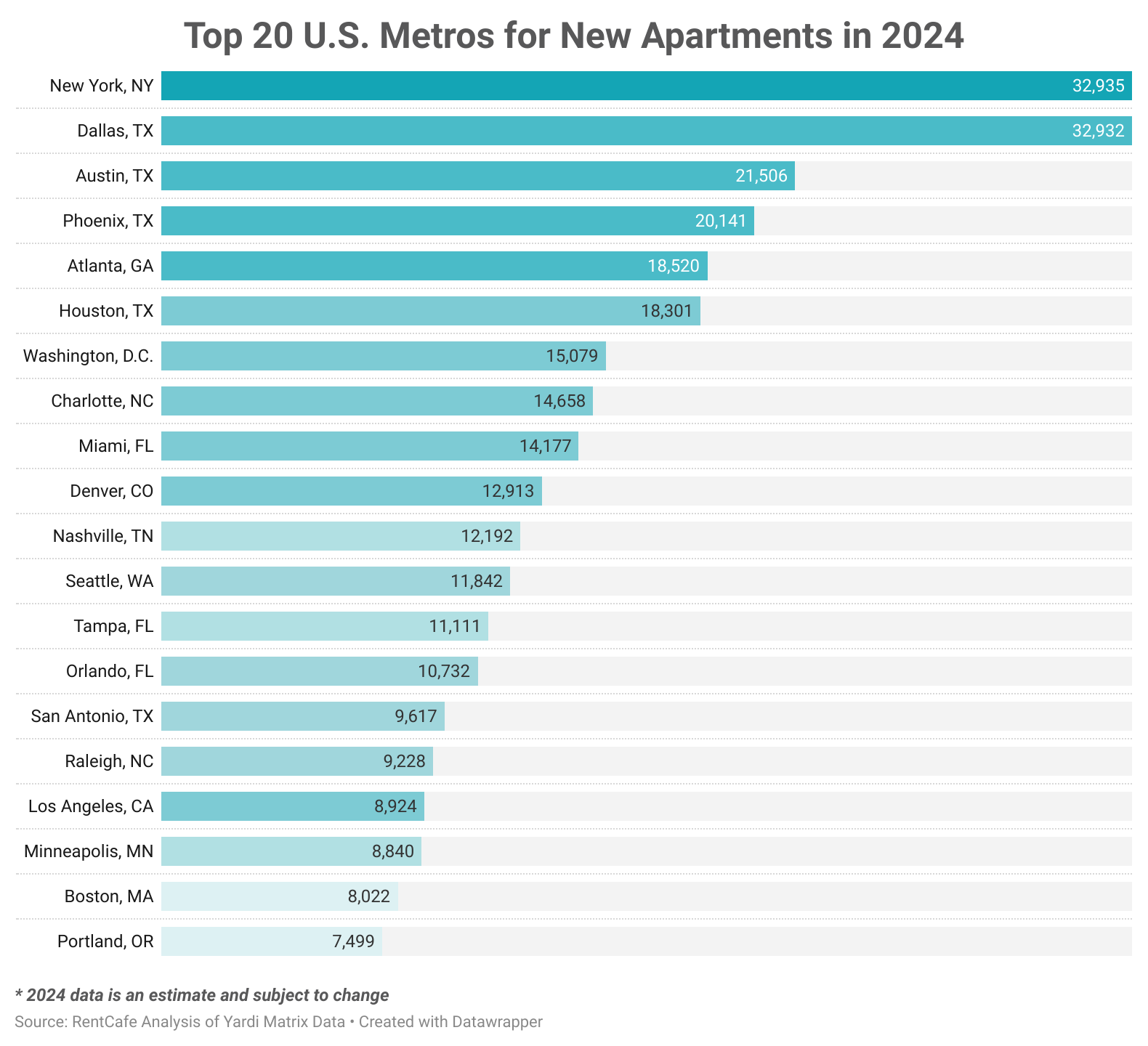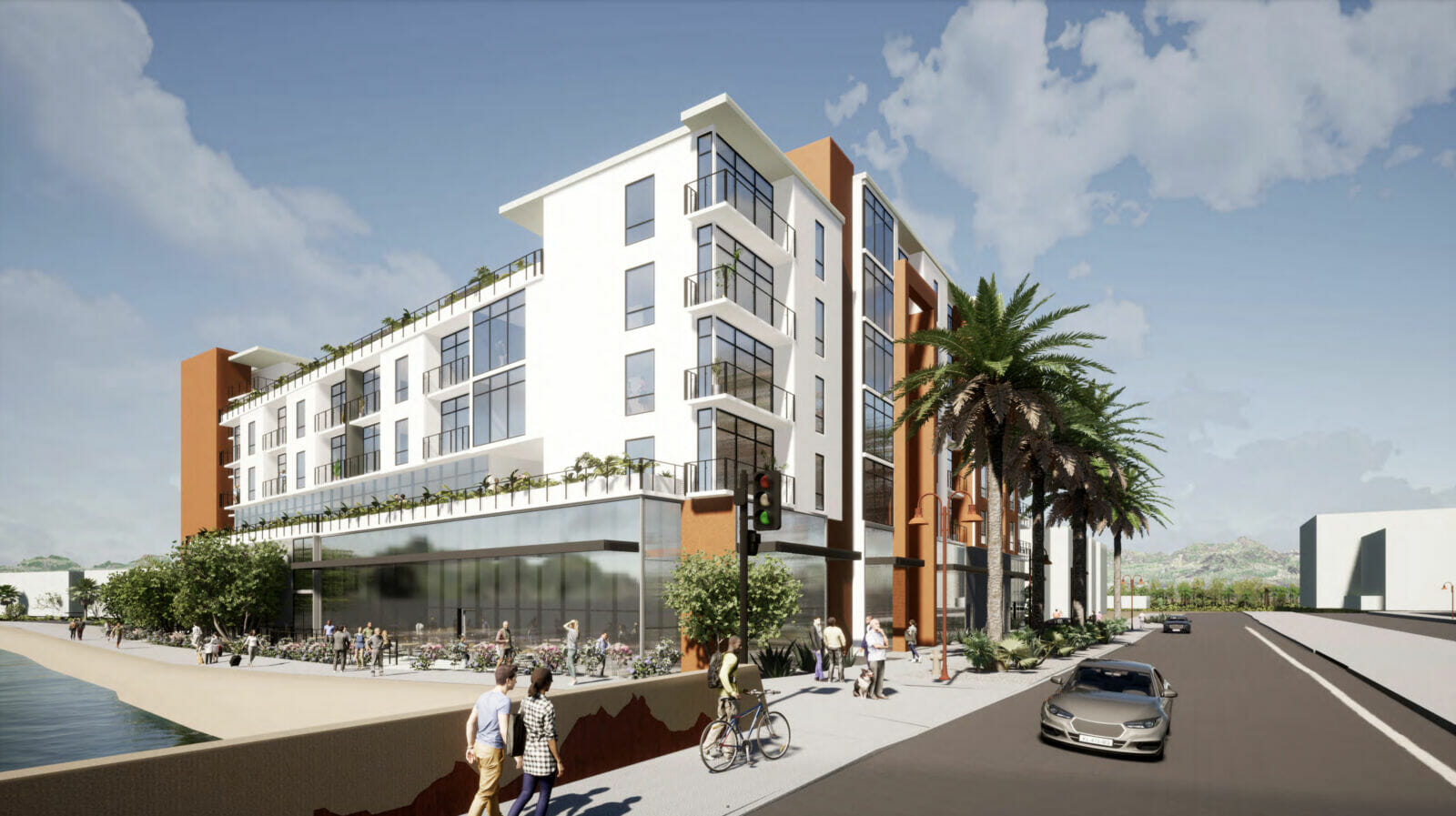RentCafe‘s 2024 Apartment Construction Report unveils surprising trends nationwide, including the Metro Phoenix apartment boom and its role in the market.
MORE NEWS: AZRE’s Most Influential Women in Commercial Real Estate for 2024
• Metro Phoenix is an apartment construction powerhouse in 2024 (4th busiest builder in the U.S.), set to complete 20,141 apartments by the end of the year, outranked only by New York, Dallas and Austin.
• What’s more, metro Phoenix is gearing up for a veritable building boom between 2024 and 2028, when a staggering 60,833 units are expected to comeonline. That’s a 22% increase compared to apartments built during the last half a decade.
• Furthermore, Phoenix is among the few metros to experience an increase in new apartments as most giant rental markets (for example Houston, Atlanta, Washington, D.C., Chicago, San Francisco, Los Angeles) are anticipated to see a slowdown in construction.
• 2024 marks a historic milestone for apartment construction in the U.S. as the number of completions is set to surpass 500,000 units for the first time on record. Furthermore, a staggering 2 million apartments are expected by 2028, despite fewer starts amid uncertainties.

The U.S. is poised to reach new heights in apartment construction for the third year in a row, with 2024 expected to set a new record: By the end of the year, developers are on track to complete a staggering 518,108 rental units, marking a 9% increase compared to 2023 and a staggering 30% rise from 2022.
What’s more, 2024 is the first year in the history of U.S. apartment construction in which the number of completions will surpass the 500,000-unit threshold. The New York metro is leading the charge for the third consecutive year, followed by Dallas and Austin. Notably, the Dallas and Austin metro areas together are expected to welcome roughly 10% of all apartments opened nationwide by the end of December.
Looking ahead, 2 million apartments are set to come online by 2028, despite uncertainties in most markets that are causing fewer new projects to start. Furthermore, about 47% of the 369 metros analyzed are likely to build more in the next five years than they did from 2019 to 2023.




